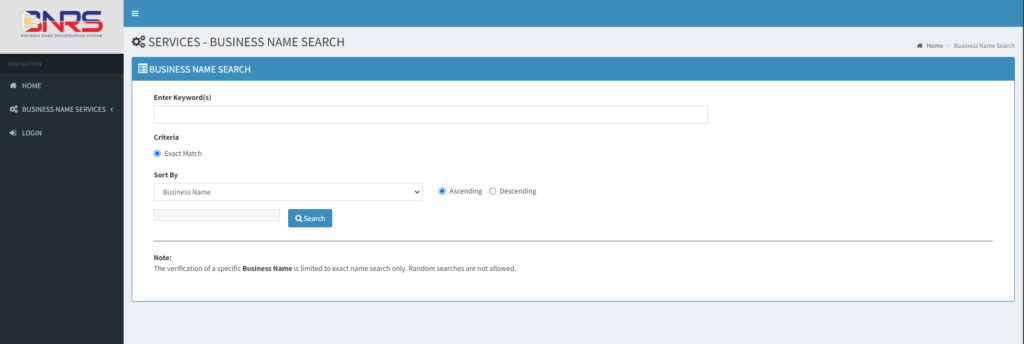Last updated on April 26th, 2025 at 06:00 am
You’ve got the DTI permit number. Maybe it’s from a supplier, a potential partner, or a competitor you’re scoping out.
But how do you know if it’s legit?
Don’t get caught slipping. Verifying a DTI permit number is crucial. It’s like checking the ID of a business. You want to make sure you’re dealing with the real deal, not some fly-by-night operation.
Here’s the breakdown, straight-up, no fluff:
Why DTI Permit Verification Matters
Think of it like this: you wouldn’t hand over your credit card to someone without checking their ID, would you? Same goes for business.
A valid DTI permit tells you a few key things:
- Legitimate Business: The business is officially registered with the Department of Trade and Industry (DTI) in the Philippines. They’re not operating under the table. This is a basic trust factor.
- Consumer Protection: Registered businesses are more likely to adhere to consumer protection laws. You’ve got some recourse if things go south.
- Credibility: A valid permit adds a layer of credibility. It shows the business is serious and committed.
Bottom line: Verifying a DTI permit is a simple step that can save you a lot of headaches down the road.
Methods to Verify a DTI Permit Number
There are a few ways to check if a DTI permit number is valid. Choose the method that suits you best:
1. DTI Online Search (The Quickest Way)
Go to the official DTI Business Name Registration System (BNRS) website: https://bnrs.dti.gov.ph/search

And then type in the name of the business you’re checking.
Hit search.
The website will show you if the business is registered. You’ll see the business name, territory, status, and scope.
Caveat: While this method confirms registration, it doesn’t show the actual permit number. It’s a good first step, but you might need more info.
2. DTI Office Visit
- Locate a DTI office: Find the nearest DTI office or Negosyo Center.
- Bring the permit number: Have the DTI permit number ready.
- Inquire: Ask a DTI representative to verify the permit number for you.
Pro: This is the most reliable method. You’ll get official confirmation directly from the source.
Con: It takes more time and effort than the online search.
3. Contact the DTI
- Gather contact details: Find the contact information for the DTI BNRS Helpdesk.
- Reach out: Call or email the helpdesk with the permit number.
- Request verification: Ask them to confirm the validity of the permit.
Pro: Convenient if you can’t easily visit a DTI office.
Con: May take some time to get a response.
Read also: Latest DTI Contact Number + Email
4. Third-Party Platforms
Some platforms may offer DTI permit verification as part of their services. This is more common with:
- E-commerce platforms: Marketplaces might verify sellers’ permits.
- Financial institutions: Banks or lending companies might check permits before granting loans.
- Business directories: Some online directories verify businesses before listing them.
Pro: Adds another layer of verification.
Con: Not all platforms offer this service.
Read also: DTI Registration Fees in the Philippines
Red Flags to Watch Out For
- No online presence: If the business has no website or social media, that’s a red flag. Most legitimate businesses have some online presence these days.
- Evasive behavior: If the business is hesitant to provide their DTI permit number or information about their registration, be wary.
- Inconsistent details: If the information on the permit doesn’t match what you know about the business (e.g., name, address), that’s a warning sign.
Protecting Yourself (Be a Savvy Operator)
Verifying a DTI permit is just one step in protecting yourself. Here are some other things to keep in mind:
- Do your research: Before doing business with anyone, do your homework. Check online reviews, ask for references, and trust your gut.
- Get everything in writing: Always have a written agreement that outlines the terms of your transaction.
- Be wary of deals that seem too good to be true: If it sounds too good to be true, it probably is.
- Pay with a secure method: Use a credit card or a trusted payment platform that offers buyer protection.
Remember: You’re in business to make money, not lose it. Taking a few precautions can save you a lot of trouble in the long run.
Read also:
 Web HostingCost-effective shared hosting solutions
Web HostingCost-effective shared hosting solutions Reseller HostingStart your own hosting business without tech hustle
Reseller HostingStart your own hosting business without tech hustle Affiliate ProgramEarn commission by referring customers to our platforms
Affiliate ProgramEarn commission by referring customers to our platforms cPanel HostingHosting powered by cPanel (Mostly user friendly)
cPanel HostingHosting powered by cPanel (Mostly user friendly) Windows HostingOptimized for windows based-applications and sites
Windows HostingOptimized for windows based-applications and sites Domain SearchFind and register available domain names in seconds
Domain SearchFind and register available domain names in seconds All DomainsExplore and register domain extensions across the world
All DomainsExplore and register domain extensions across the world Domain Transfermove your domain to us with zero downtime and full control
Domain Transfermove your domain to us with zero downtime and full control Whois LookupLook up domain ownership, expiry dates and registrar information
Whois LookupLook up domain ownership, expiry dates and registrar information .com DomainSecure the most recognized domain for global credibility
.com DomainSecure the most recognized domain for global credibility VPS HostingScalable virtual servers. Full root access. Faster speed.
VPS HostingScalable virtual servers. Full root access. Faster speed. Managed VPSNot a tech expert? Choose our fully managed VPS server.
Managed VPSNot a tech expert? Choose our fully managed VPS server. Dedicated ServersGet the full power and complete control of your own physical server.
Dedicated ServersGet the full power and complete control of your own physical server.
